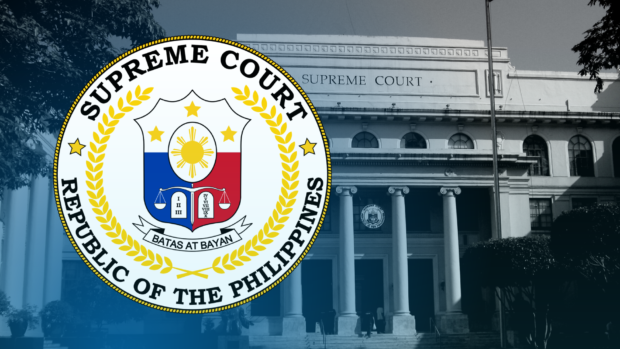
MANILA, Philippines –Parents and guardians using punishments that belittle, threaten, humiliate, condemn, and scare a child can be held liable for damages under the Civil Code, the Supreme Court (SC) warned in a decision made public only last August 3.
“The best interest of a child cannot justify forms of cruel or degrading punishment which conflict with a child’s human dignity, including punishment which belittles, humiliates, denigrates, scapegoats, threatens, scares or ridicules a child,” said the SC’s Second Division through Senior Associate Justice Marvic Leonen.
The case was about a complaint for damages filed by the parent of a 14-year-old girl against the parent of a schoolmate with whom she purportedly entered into a special friendship in 2004.
The boy’s parents learned of the relationship. To express their dislike, the parents would take every opportunity to drop snide remarks at the girl in the presence of classmates, schoolmates, and fellow parents.
The boy’s parents also told other parents that the girl has been preying on boys since grade school.
As a result, the girl fell into depression and disengaged from her studies, causing her to lose her academic distinction as an honor student and leader.
She also attempted to commit suicide. She then dropped out and moved to a different school prompting her parents to file the case.
The lower court ruled in favor of the girl’s parents.
A motion for reconsideration was denied, thus elevating the case to the Court of Appeals, which also ruled that the boy’s parents are jointly liable for damages for harassing, intimidating, and spreading false and malicious rumors about the 14-year-old girl.
The CA affirmed the lower court’s ruling that the boy’s parents are liable to pay P30,000 as moral damages, P20,000 for exemplary damages, and P30,000 for attorney’s fees.
The couple filed an appeal which was also junked by the CA, prompting them to take their case to the SC.
The couple said they only admonished her for committing acts unbecoming of a student leader, such as sitting on the lap of their son even inside the classroom.
But the Supreme Court affirmed with modification the decisions of the lower court and the Court of Appeals by imposing a six percent legal interest per year of the said amounts, reckoned from the finality of its decision until fully paid.
“Hence, to serve as a deterrent to future and subsequent parties from the commission of a similar offense,” the Supreme Court said.
The SC said no less than the Constitution mandates the protection of a child “through measures that will ensure the observance of international standards of child protection, especially those to which the Philippines is a party.”
Among the international instruments is the United Nations Convention on the Rights of the Child (Convention), a treaty that the Philippines signed on January 26, 1990, and ratified on August 21, 1990.
The Supreme Court also mentioned Republic Act 7610, or the Anti-Child Abuse Act that, which penalizes all forms of child abuse, including psychological abuse and cruelty or any “act by deeds or words which debases, degrades or demeans the intrinsic worth and dignity of a child as a human being.”
The SC said while it is true that parents and legal guardians have the right to guide a child; still they “must be accorded equal and inalienable rights.”
“Here, publicly calling an impressionable 14-year-old with defamatory words such as “Makati ang laman,” “Malandi,” and “Hindi matino” in front of her peers, teachers, and parents is undoubtedly a harsh, degrading, and humiliating experience to which no child should ever be subjected,” it added.
Concurring with the decision are Associate Justices Antonio Kho Jr., Samuel Gaerlan, Jhosep Lopez and Mario Lopez.
RELATED STORIES
Supreme Court lifts COVID regulations in courts
Supreme Court urged to review ‘dangerous provisions’ of anti-terrorism law